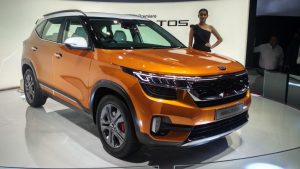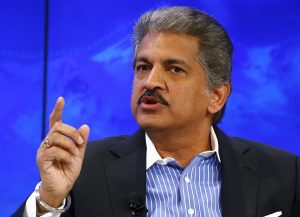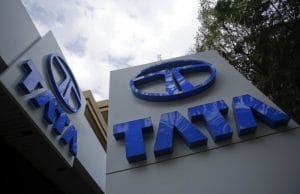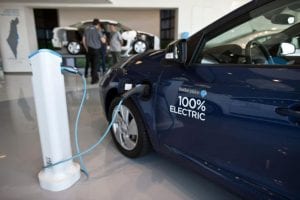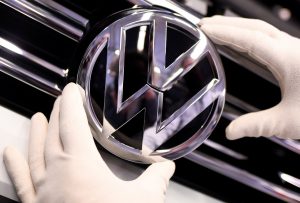Anand Mahindra: Investments can make India a global electric vehicle hub

KV Prasad Jun 13, 2022, 06:35 AM IST (Published)
 Listen to the Article (6 Minutes)
Listen to the Article (6 Minutes)
Summary
There is a tectonic shift in the auto industry, and the time is right for a shift to electric vehicles, Anand Mahindra, chairman, Mahindra & Mahindra Ltd said in his address to shareholders at M&M’s 73rd annual general meeting, where the dominant theme was electric vehicles.
There is a tectonic shift in the auto industry, and the time is right for a shift to electric vehicles, Anand Mahindra, chairman, Mahindra & Mahindra Ltd (M&M) said in his address to shareholders at M&M’s 73rd annual general meeting, where the dominant theme was electric vehicles.
He added that as the government puts all its weight behind electric vehicles, the question isn’t whether or not the country transitions to EVs, but how.
M&M has presence in every segment of the auto industry — two-wheelers, three-wheelers, cars, commercial vehicles and farm equipment, but it has only one electric car — the electric Verito — in the Indian market so far.
Admitting that there is a great amount of concern in how dramatic the shift to EVs will be, Mahindra said that there will be a long period of co-existence for internal combustion engines (ICEs) and EVs. He called for a collaborative effort between the government and industry to move towards electrification, encashing the “one-time” opportunity before India currently to become a global hub for electric vehicles.
“I see a one-time opportunity for government and industry to work together to invest in manufacturing, R&D [research and development] and the supply chain and make India the undisputed global hub of the EV world,” he said.
Assuaging concerns that the auto ancillaries industry will not be able to cope with such a transition, Mahindra said that component manufacturers form a resilient industry and that they’ll adapt to changing technology, given they are provided adequate time and a fair warning.
Can M&M make India adapt to expensive EVs?
With over 5,000 electric vehicles on the road having clocked over 13,000 kms, M&M is already pioneering the EV space, according to Mahindra.
However, he said that the company will not over-manufacture EVs and will keep production aligned to demand.
M&M is the largest supplier to the ministry of power-run energy service company EESL, and has its own e-mobility pilot platform called Glyd, which was flagged off in February with a fleet of ten electric Veritos.
The e-Verito, M&M’s only electric offering in the passenger vehicle space, comes at a cost of approximately Rs 12 lakh.
The company has planned three more electric cars in the next two-three years, including the eKUV to be launched by the end of the year, the S210, and the E-Aspire, whose launch dates haven’t been formally announced yet, according to Pawan Goenka, managing director, M&M.
Goenka also announced that the company is investing in capacity in the EV space and the upcoming launches, and has a plant dedicated to EV production coming up in Chakan, Pune.
Goenka said that with FAME II subsidies and the goods and services tax (GST) reduction on EVs from 12 percent to 5 percent, the business case for EVs is now becoming positive. If the Li-ion cells become duty-exempt, said Goenka, the costs would come down further.
For M&M, the priority is to invest in electric three-wheelers, as they’re “low-hanging fruit”, Goenka told reporters at the company’s Q1 results press conference.
Mahindra, later in the AGM, told shareholders that California-based GenZe, which it owns, sells electric scooters in affluent markets in the USA currently, but the vehicles are “a very expensive proposition” in India. The GenZe 2.0 comes with a price tag of over Rs 2.5 lakh, more than double the cost of the Ather 250, the country’s most expensive e-scooter yet.
However, Mahindra said, India will be an attractive market for electric two-wheelers and the company will draw up plans to sell them in the country.
On expanding the e-mobility platform Glyd, Goenka said the company wants to ensure they have the right business model, and won’t expand in haste.
“Glyd is working well. We have 30 vehicles running on the platform and will soon order 30-40 more. We’re currently only on one route in Mumbai, but we will soon do the Delhi route too.” Goenka said, adding, “We’re doing this as much to demonstrate to others that EVs can be run profitably. We want to make EVs accepted by service providers, not just customers.”
“The prime minister in 2018 shared a holistic vision for the future of mobility and committed to it publically… it is heartening to see a government propelling the industry to an envisioned future that’ll improve all our lives”, Mahindra said, adding that EVs were gentler on the planet, and free us from dependence on expensive, imported fossil fuels.

Elon Musk forms several ‘X Holdings’ companies to fund potential Twitter buyout
3 Mins Read
Thursday’s filing dispelled some doubts, though Musk still has work to do. He and his advisers will spend the coming days vetting potential investors for the equity portion of his offer, according to people familiar with the matter

KV Prasad Journo follow politics, process in Parliament and US Congress. Former Congressional APSA-Fulbright Fellow



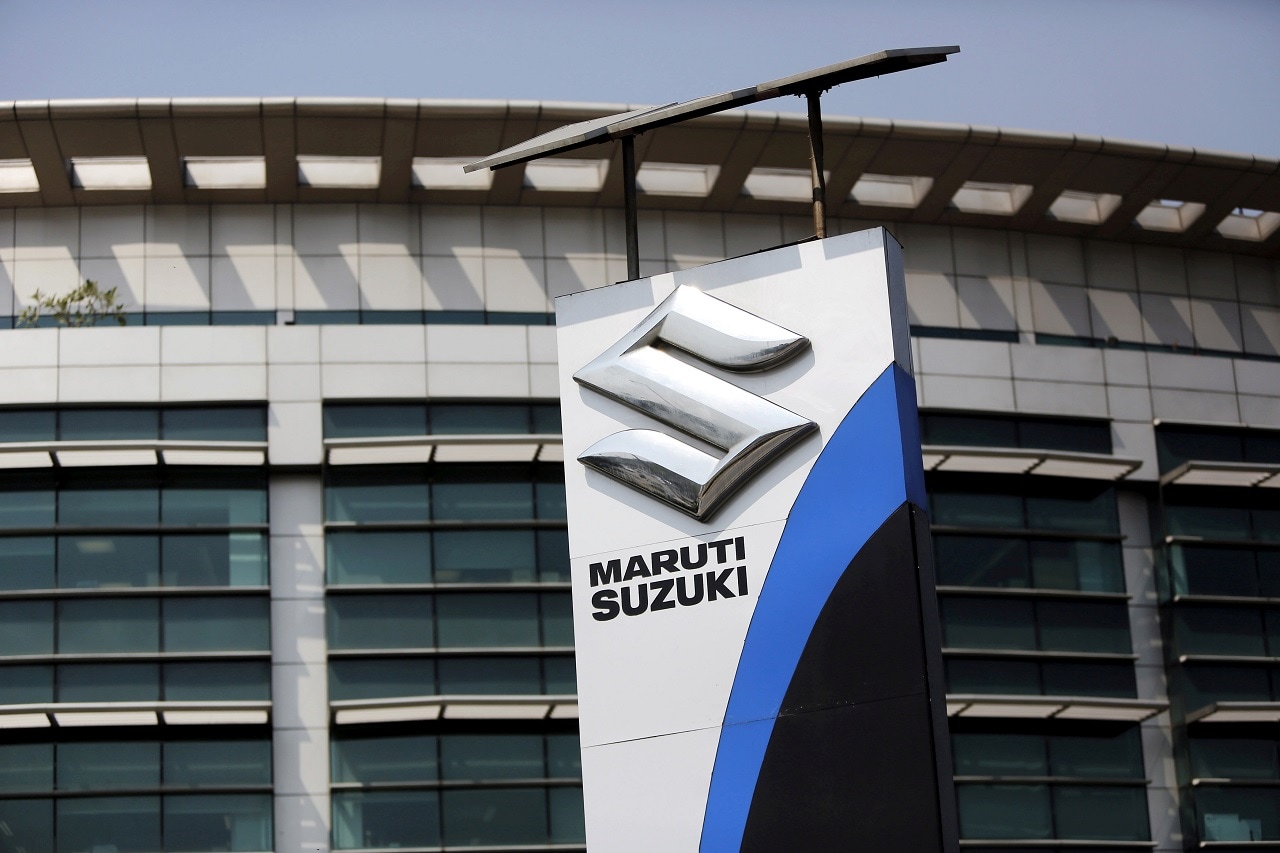






 Listen to the Article
Listen to the Article  Daily Newsletter
Daily Newsletter





